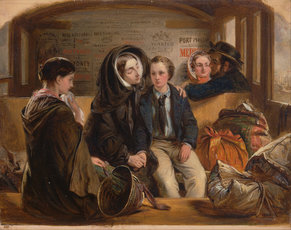
Linguistics
Structuralism is largely based on the study of language and its structure. Language is viewed as a self-referential system that arose in cultures and societies to serve a function. According to structuralist theory, the structure of languages map out the characteristics of societies. In this context, different natural languages are viewed as having significant commonalities with any structural differences reflecting the differences between societies and cultures.Language
As structuralism seeks to understand all things in terms of language, it tends to view language as all powerful. For example, an author doesn't know what her book is about because only a structuralist who has studied the meaning of words would be qualified to do this. In other words, language is presented as having more power than people.Structures
Structuralists are primarily interested in the structure of language, in other words how concepts are related to each other such that they form a structure. For example, opposite relationships between concepts such as community vs individual.Universalism
Structuralism is an attack on universalism whereby concepts are thought to have some universal meaning. Structuralism views language as a function of society that doesn't map to some universal truth. For example, structuralism views a concept such as freedom as a function of societies that doesn't have any deep reality behind it. This supports the postmodernist view of relativism and the idea that everything is socially constructed as part of a power struggle.Binary Opposition
Modeling structures in terms of simplistic binary opposites without complexities such as grey areas. This can be contrasted with classical texts such as Plato that tend to view things as complementary forces that interplay in unimaginably complex ways. The following are examples of binary opposites.Capitalism & Communism | Collectivism & Individualism |
Control & Chaos | Elite & Masses |
Freedom & Enslavement | Good & Bad |
Logical & Emotional | Love & Hate |
Male & Female | Oppressor & Oppressed |
Organic & Technological | Patriarchal & Matriarchal |
Power & Powerlessness | Right & Wrong |
Safety & Danger | Security & Insecurity |
System & Individual | True & False |
Behavior
Language and its structure are presented as mapping the human mind and human behavior. In other words, structuralists believe that language emerges from the human mind and is therefore a map of it.Categorization
An attempt to categorize all things according to structures, particularly binary oppositions.Determinism
A tendency to portray the events of history and actions of individuals as predetermined by structures.Ahistorical
Generally speaking, structuralism views everything in terms of language and doesn't account for the role of history in the development of society and culture.Agency
Human agency is disregarded as individual actions are viewed as more or less predetermined by structures. For example, structuralists would view your every action as dictated by the society, class system, culture, norms, institutions and other structures that bound you.Self-sufficiency
Structuralism was presented as an all encompassing method that can explain everything in the social sciences and beyond. In other words, it made excessive claims as opposed to positioning itself as a tool in a toolset.Postmodernism
Structuralism is quite limited as language is demonstrably inconsistent, ambiguous and somewhat unstructured. However, it had significant influence on other academic methods. For example, structuralism has greatly influenced postmodernism which tends towards viewing human agency as limited and social constructs and language as the root of all things.Notes
Structuralism in psychology is unrelated to structuralism in social sciences.Structuralism is the theoretical basis for the postmodern idea that language is the basis of political power. This has led to much effort to engineer language along ideological lines. For example, inventing new terms for things and labeling the language of the opposition as invalid and taboo.| Overview: Structuralism | ||
Type | ||
Definition | An academic approach that uses language and its structure to model culture, society and behavior. | |
Related Concepts | ||






























